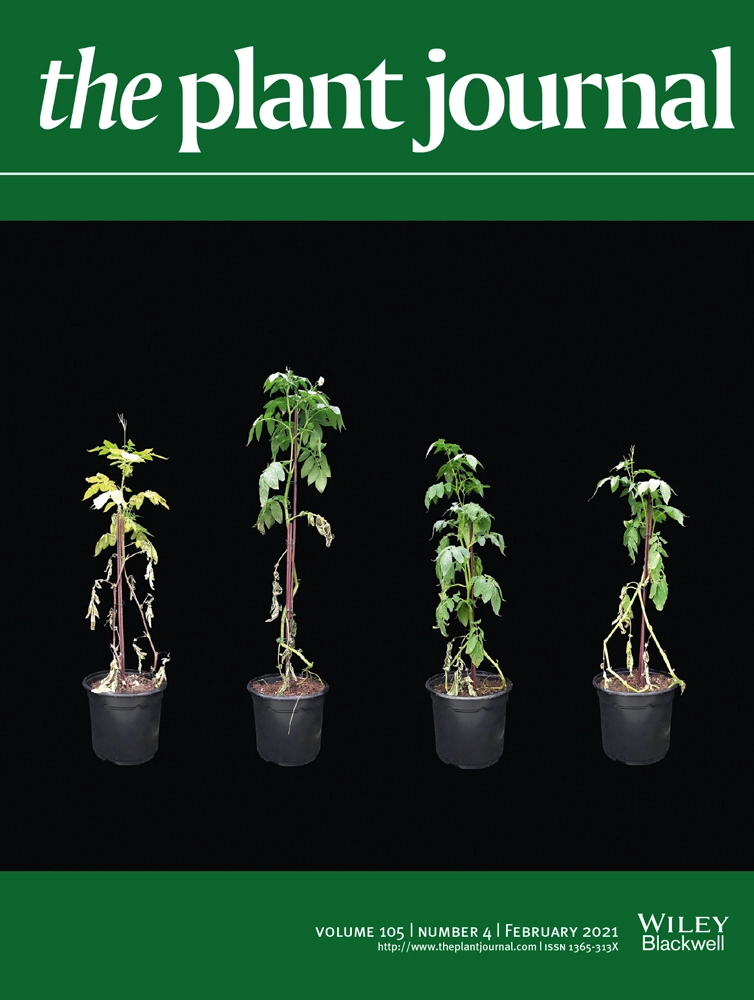View Item
- xmlui.general.dspace_homeCentros e Institutos de InvestigaciónCIAP. Centro de Investigaciones AgropecuariasInstituto de Fisiología y Recursos Genéticos VegetalesArtículos científicosxmlui.ArtifactBrowser.ItemViewer.trail
- DSpace Home
- Centros e Institutos de Investigación
- CIAP. Centro de Investigaciones Agropecuarias
- Instituto de Fisiología y Recursos Genéticos Vegetales
- Artículos científicos
- View Item
Ammonium stress increases microautophagic activity while impairing macroautophagic flux in Arabidopsis roots
Abstract
Plant responses to NH4 + stress are complex, and multiple mechanisms underlying NH4 + sensitivity and tolerance in plants may be involved. Here, we demonstrate that macro‐ and microautophagic activities are oppositely affected in plants grown under NH4 + toxicity conditions. When grown under NH4 + stress conditions, macroautophagic activity was impaired in roots. Root cells accumulated autophagosomes in the cytoplasm, but showed less autophagic flux,
[ver mas...]
Plant responses to NH4 + stress are complex, and multiple mechanisms underlying NH4 + sensitivity and tolerance in plants may be involved. Here, we demonstrate that macro‐ and microautophagic activities are oppositely affected in plants grown under NH4 + toxicity conditions. When grown under NH4 + stress conditions, macroautophagic activity was impaired in roots. Root cells accumulated autophagosomes in the cytoplasm, but showed less autophagic flux, indicating that late steps of the macroautophagy process are affected under NH4 + stress conditions. Under this scenario, we also found that the CCZ1‐MON1 complex, a critical factor for vacuole delivery pathways, functions in the late step of the macroautophagic pathway in Arabidopsis. In contrast, an accumulation of tonoplast‐derived vesicles was observed in vacuolar lumens of root cells of NH4 +‐stressed plants, suggesting the induction of a microautophagy‐like process. In this sense, some SYP22‐, but mainly VAMP711‐positive vesicles were observed inside vacuole in roots of NH4 +‐stressed plants. Consistent with the increased tonoplast degradation and the reduced membrane flow to the vacuole due to the impaired macroautophagic flux, the vacuoles of root cells of NH4 +‐stressed plants showed a simplified structure and lower tonoplast content. Taken together, this study presents evidence that postulates late steps of the macroautophagic process as a relevant physiological mechanism underlying the NH4 + sensitivity response in Arabidopsis, and additionally provides insights into the molecular tools for studying microautophagy in plants.
[Cerrar]

Author
Robert, German;
Yagyu, Mako;
Koizumi, Takaya;
Naya, Loreto;
Masclaux‐Daubresse, Céline;
Yoshimoto, Kohki;
Fuente
The Plant Journal 105 (4) : 1083-1097 (February 2021)
Date
2020-11-22
Editorial
Wiley
ISSN
0960-7412
1365-313X (online)
1365-313X (online)
Formato
pdf
Tipo de documento
artículo
Palabras Claves
Derechos de acceso
Restringido
 Excepto donde se diga explicitamente, este item se publica bajo la siguiente descripción: Creative Commons Attribution-NonCommercial-ShareAlike 2.5 Unported (CC BY-NC-SA 2.5)
Excepto donde se diga explicitamente, este item se publica bajo la siguiente descripción: Creative Commons Attribution-NonCommercial-ShareAlike 2.5 Unported (CC BY-NC-SA 2.5)

